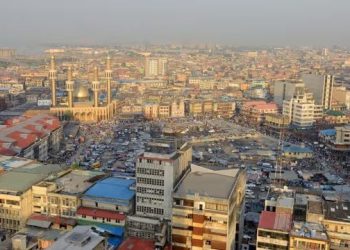UK dependents route remains open for international students, particularly intending to come in for their Doctor of Philosophy (PhD), and Post-graduate Research studies.
Dr. Richard Montgomery, the British High Commissioner to Nigeria, revealed this information during an interview with the News Agency of Nigeria (NAN) on Sunday in Abuja.
Montogomery also mentioned that the policy change, which was implemented earlier this year, prohibits international students not captured in the aforementioned categories from bringing dependents to the UK.
He stated that the decision was taken to tackle the increasing problem of numerous foreign students bringing their dependents.
READ ALSO: Will US SEC Investigate OpenAI CEO Altman And Microsoft’s Nadella?
The introduction of these policy changes was a direct response to the unsustainable pressure that numerous universities faced as a result of the influx of dependents, as he observed.
He highlighted that university Chancellors had expressed worries regarding the high number of students, particularly highlighting issues like insufficient housing, availability of healthcare services under the National Health Service, and education for students’ family members.
Montgomery explained that the restrictions are not universal, highlighting that those pursuing long-term research degrees, such as PhDs or doctorates, are exempted from these limitations.
Those coming to the UK for a doctorate can still bring their dependency but if you are coming to the UK with a study visa for an undergraduate degree, or short-term master’s degree am afraid the rules have been changed.
People need to understand why this change was brought in, and it is a sensible change because we have a large higher education sector and most of these universities are in towns across the country.
I really like the demand but there are other factors at play in terms of schooling in the UK, the value of the Naira in the coming months will also determine how easy or hard it will be for many people to afford our education
But I hope that the number of people who bring dependents in the UK may not be a majority, but a minority of people have tried to study in the UK so am hoping that the demand will be sustained
Speaking on the policy initiation it is early to ascertain the impact of the policy on undergraduates because these changes were announced in 2023 but came into effect early this year and we would have to wait until September 2024, before we get the next run of academic tickets, he said.
I think what your wider audience needs to hear is that the demand for UK education is really strong, in 2022, 65,000 study visas were approved to Nigerian applicants, 65,000, while in September 2023 we received about 115,000 Study visa applications from Nigeria
Of which 95 percent were approved and over 110,000 study visas were issued last September compared to 65,000 of the previous year, there’s almost a doubling of Nigerian study visas in 2023 which means the demand is high
“And it is something which I am genuinely pleased and proud about that the UK has such a good higher educational sector and we are still at the sixth economy and is still one of the biggest economies but we are only 2.5 percent of the global economy
Background Information
In January, reports indicated that the UK government has implemented new regulations to limit Nigerian and other foreign students from bringing their families as dependents while pursuing their studies in the country, unless under certain conditions.
It stated that these students will no longer be able to bring dependants with them unless they are on postgraduate courses that are currently designated as research programs.
The government under the new package said that it also removed the ability for international students to switch out of the student route and into work routes before their studies have been completed “to prevent misuse of the visa system.
According to Sky News, this was made known by the UK Home Secretary, Suella Braverman, who said that this is part of the mechanism to reduce net migration.










